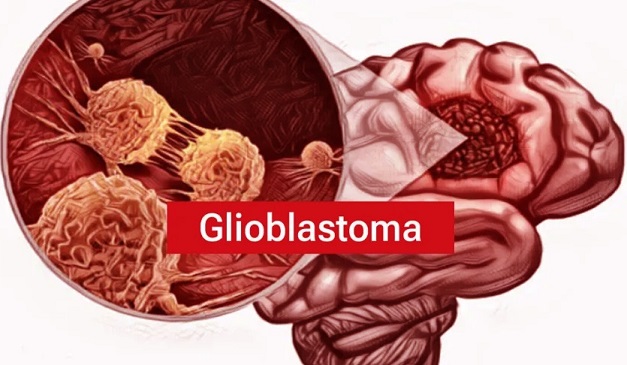Nikhil Prasad Fact checked by:Thailand Medical News Team Jan 06, 2025 1 year, 1 month, 1 hour, 48 minutes ago
Medical News: Glioblastoma is widely regarded as one of the most aggressive and common types of primary brain cancer. Affecting both the brain and central nervous system, it accounts for 14.5% of all central nervous system tumors and nearly half of malignant brain tumors. Despite advancements in medical science, glioblastoma remains a formidable challenge, with standard treatment extending survival to an average of only 13 to 19.9 months in clinical trials. This
Medical News report dives into a recent single-center study that explores factors influencing the recurrence and survival of glioblastoma patients.
 Understanding Glioblastoma Recurrence and Survival
Study Overview and Participants
Understanding Glioblastoma Recurrence and Survival
Study Overview and Participants
The study, led by researchers from Lenox Hill Hospital in New York-USA, Mount Sinai Hospital in New York-USA, Qatar Metabolic Institute, and Zagazig University in Egypt, analyzed data from 104 glioblastoma patients diagnosed between 2017 and 2022. Researchers focused on various biological, radiological, and molecular factors that impact tumor recurrence and patient survival. Using advanced genetic sequencing techniques, they evaluated tumor characteristics and associated them with clinical outcomes.
The team aimed to uncover predictive factors for recurrence and survival while evaluating the effectiveness of different treatment modalities. All patient data, including demographics, treatment histories, and genetic profiles, were collected through electronic medical records.
Key Study Findings
-Biological Factors and Recurrence
Age emerged as a significant factor in tumor recurrence. Patients under 60 years of age were more likely to experience tumor regrowth compared to older individuals. Interestingly, obesity and the female gender appeared to be associated with decreased recurrence rates. However, no significant differences were observed between tumor size, necrosis, and focality in terms of their impact on recurrence.
-Radiological and Molecular Insights
Radiological analyses showed that tumors larger than 4 cm were linked to shorter survival durations, though this trend was not statistically significant. Molecular markers, such as MGMT promoter methylation and EGFR alterations, did not demonstrate significant associations with recurrence or survival in this cohort.
-Survival and Treatment
The median survival duration for all patients was 12 months. Those who underwent complete tumor resections lived significantly longer, with a median survival of 22 months compared to 10.5 months for those receiving partial resections. Additionally, patients who received standard or non-standard chemoradiotherapy treatments had markedly improved survival rates compared to those who received no treatment.
Among the participants, 36 experienced tumor recurrence, with a median recurrence duration of 10 months. Surprisingly, patients who lived longer were more likely to experience tumor recurrence, which could be attributed to their prolonged exp
osure to potential treatment-related factors.
Clinical Implications
-Role of Age in Prognosis
Age consistently emerged as a key determinant of prognosis. Younger patients not only had higher recurrence rates but also longer survival durations. This underscores the need for tailored treatment strategies based on age to optimize outcomes.
-Surgery and Chemoradiotherapy
The extent of tumor resection was crucial in influencing survival outcomes. Patients who underwent complete resections fared significantly better than those who underwent partial surgeries or biopsies. Similarly, chemoradiotherapy - whether standard or non-standard - proved essential in extending survival, emphasizing the importance of aggressive and multidisciplinary approaches in managing glioblastoma.
Study Limitations and Future Directions
While the findings provide valuable insights, the study’s single-center design and relatively small sample size may limit the generalizability of its conclusions. The researchers highlighted the need for multicentric investigations to validate these findings and explore other genetic and molecular markers not included in this analysis, such as TERT mutations.
Additionally, the lack of significant associations for MGMT promoter methylation and EGFR alterations calls for further exploration. Larger studies might better capture the nuances of these factors and their roles in influencing outcomes.
Conclusion
This study sheds light on the complex interplay of biological, radiological, and treatment-related factors that shape the prognosis of glioblastoma patients. Age, surgical extent, and chemoradiotherapy emerged as pivotal determinants of survival, while tumor size and certain molecular markers showed limited impact in this cohort. These findings underscore the need for personalized treatment strategies that consider individual patient characteristics to improve outcomes.
As the medical community continues to grapple with the challenges posed by glioblastoma, this research highlights the importance of integrating clinical, radiological, and molecular insights into decision-making. With further studies, a more comprehensive understanding of glioblastoma can pave the way for innovative treatments and better patient care.
The study findings were published in the peer-reviewed journal: Journal of Molecular Pathology.
https://www.mdpi.com/2673-5261/5/4/35
For the latest on Glioblastoma, keep on logging to Thailand
Medical News.
Read Also:
https://www.thailandmedical.news/news/american-researchers-develop-new-glioblastoma-treatment-using-microrna-based-therapy
https://www.thailandmedical.news/news/innovative-ultrasound-therapy-for-glioblastoma-treatment
https://www.thailandmedical.news/news/unlocking-the-potential-of-liquid-biopsies-in-glioblastoma-diagnosis-and-treatment
https://www.thailandmedical.news/news/amino-acid-deprivation-as-a-new-hope-in-glioblastoma-treatment
https://www.thailandmedical.news/news/natural-compounds-show-promise-as-adjuvants-for-glioblastoma
https://www.thailandmedical.news/news/university-of-mississippi-study-shows-that-juice-of-the-cornelian-cherry-can-help-with-glioblastoma
